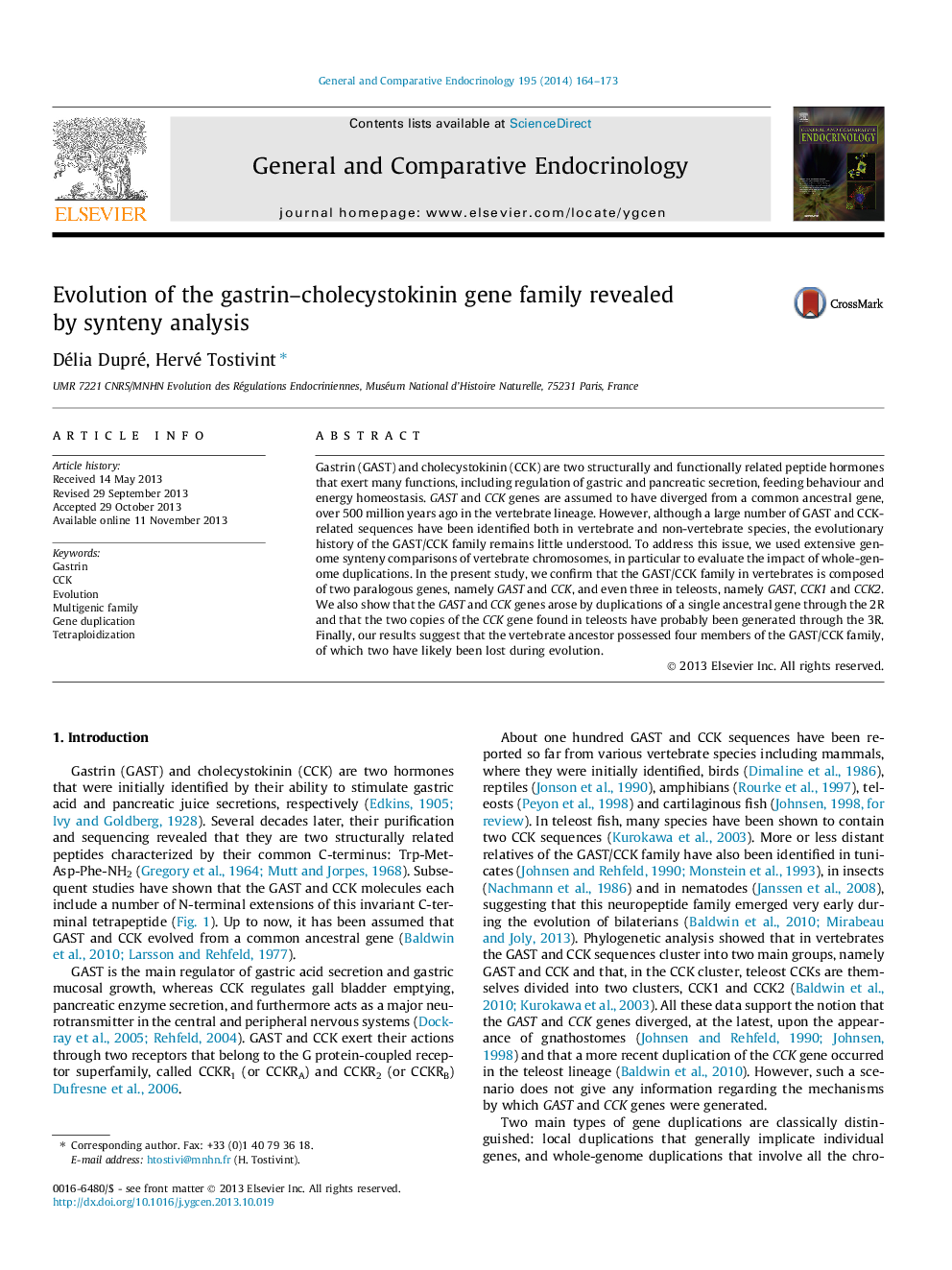| Article ID | Journal | Published Year | Pages | File Type |
|---|---|---|---|---|
| 5901196 | General and Comparative Endocrinology | 2014 | 10 Pages |
Abstract
Gastrin (GAST) and cholecystokinin (CCK) are two structurally and functionally related peptide hormones that exert many functions, including regulation of gastric and pancreatic secretion, feeding behaviour and energy homeostasis. GAST and CCK genes are assumed to have diverged from a common ancestral gene, over 500 million years ago in the vertebrate lineage. However, although a large number of GAST and CCK-related sequences have been identified both in vertebrate and non-vertebrate species, the evolutionary history of the GAST/CCK family remains little understood. To address this issue, we used extensive genome synteny comparisons of vertebrate chromosomes, in particular to evaluate the impact of whole-genome duplications. In the present study, we confirm that the GAST/CCK family in vertebrates is composed of two paralogous genes, namely GAST and CCK, and even three in teleosts, namely GAST, CCK1 and CCK2. We also show that the GAST and CCK genes arose by duplications of a single ancestral gene through the 2R and that the two copies of the CCK gene found in teleosts have probably been generated through the 3R. Finally, our results suggest that the vertebrate ancestor possessed four members of the GAST/CCK family, of which two have likely been lost during evolution.
Related Topics
Life Sciences
Biochemistry, Genetics and Molecular Biology
Endocrinology
Authors
Délia Dupré, Hervé Tostivint,
